March 30, 2025
Story and photos by Ben Stewart
About 200 interdisciplinary health researchers and clinicians from across the University of Missouri System attended the second annual NextGen Pathways Symposium in March at the University of Missouri-Kansas City’s Student Union building.
The event showcased pathbreaking research projects from system investigators at all career stages, forged new interdisciplinary collaborations with the potential to improve global health and gave young researchers an understanding of the translational science pipeline.
“The best part about meetings is the margin between the presentations,” said Dave Arnold, executive director of the NextGen Precision Health initiative. “So we have short presentations to pique your interest, and if you’re curious about something or you want to propose a project, there are chances to connect with the speakers. And we have an amazing range of different types of cutting-edge science.”
The symposium featured 41 poster presenters and 73 total participants from Mizzou, along with three faculty researchers who took the main stage to give talks: Zachary Berndsen, assistant professor of biochemistry; Jussuf Kaifi, associate professor of surgery and Margaret Proctor Mulligan Endowed Professor in Cancer Research; and Anne Sales, professor of family and community medicine and nursing.
For faculty members like these – along with postdoctoral researchers, graduate students and even a few undergraduates – the Pathways event is designed to raise the visibility of promising work that could lead to major impacts for human health.
“The things we get to do, the questions we get to ask; it really is a privilege,” said Arnold. “So it’s our responsibility to share that work with the world.”
On average in the U.S., it takes 14 years for a new treatment to make it from the discovery phase to patients. That long translation process involves a series of experts from different disciplines. NextGen’s goal is to help those teams coordinate from the very beginning to shorten their path to a new drug, device or other innovation.
Next year, Pathways will be held March 12-13 at Missouri University of Science and Technology in Rolla.
NextGen Precision Health
Highlighting the promise of personalized health care and the impact of large-scale interdisciplinary collaboration, the UM System’s NextGen Precision Health initiative is bringing together innovators from across the system’s four research universities, MU Health Care and industry partners in pursuit of life-changing precision health advancements. It’s a collaborative effort to leverage the strengths of the entire UM System toward a better future for Missouri’s health. The initiative is anchored at the Roy Blunt NextGen Precision Health building, a state-of-the-art research facility which is expanding collaboration among researchers, clinicians and industry partners.
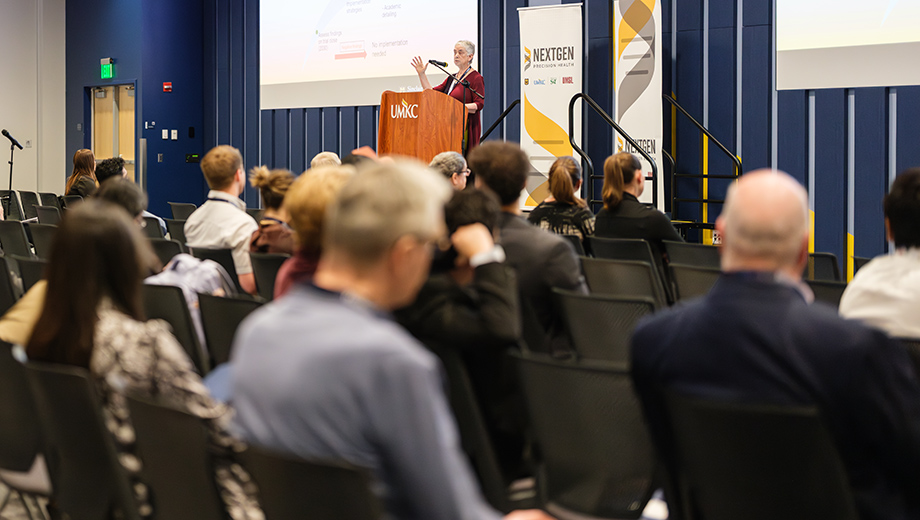
Anne Sales, professor of family and community medicine and nursing, is focused on ensuring the things we learn from research make it all the way to the clinic through a process called implementation science.
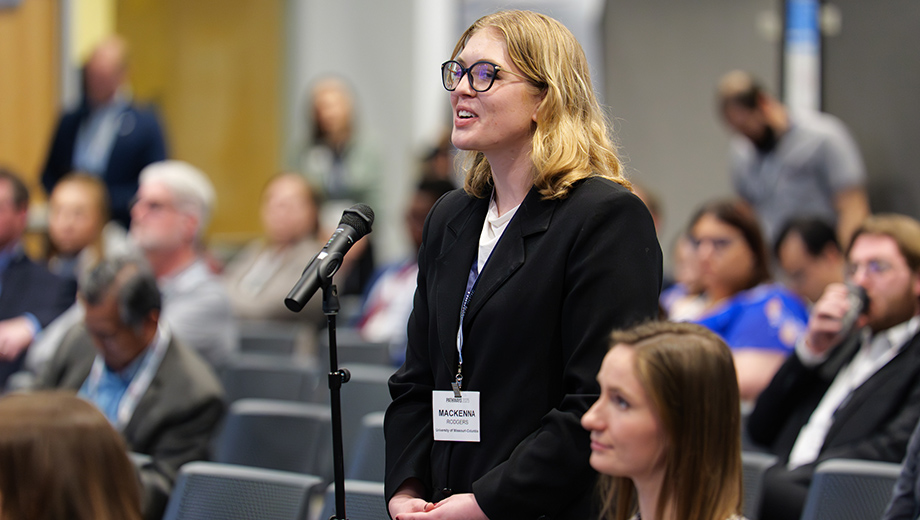
Mackenna Rodgers, an undergraduate research assistant in the lab of Associate Professor Peter Cornish who plans to attend medical school at Mizzou, presented a poster about developing a broad-range in vitro system to probe for plant-based translational inhibitory compounds.
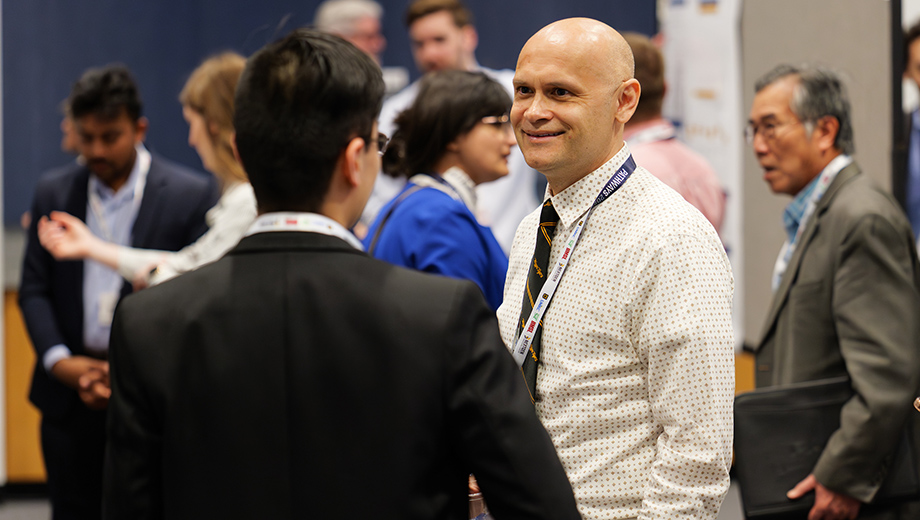
Jussuf Kaifi, Margaret Proctor Mulligan Endowed Professor in Cancer Research and associate professor of surgery, gave a talk about how advanced new preclinical models like organoids (3D tissue cultures replicating tumor growths) can be used to inform care decisions for cancer patients.
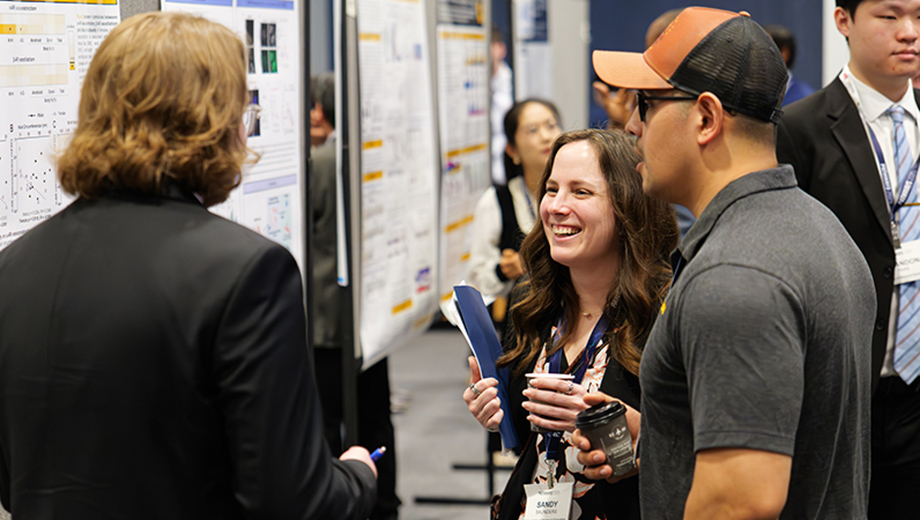
Sandy Saunders, a NextGen postdoctoral fellow based at the Dalton Cardiovascular Research Center, studies how autonomic circuits in the brainstem become dysfunctional in disease.
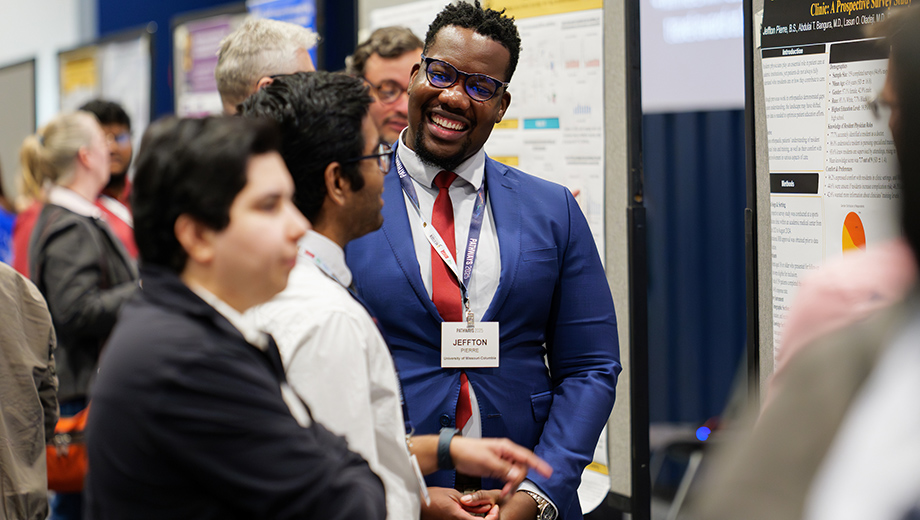
Third-year medical student Jeffton Pierre highlighted his research on patient understanding of the resident physician's role in orthopaedics.
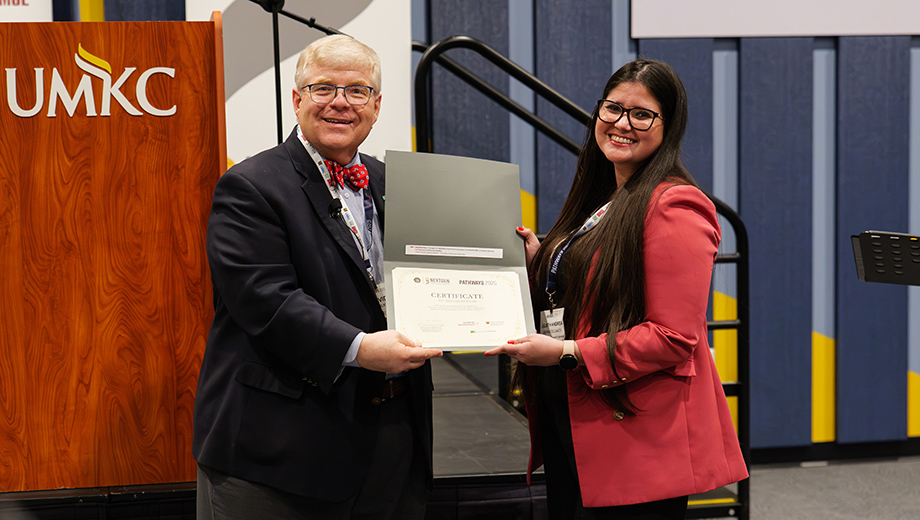
Four poster presenters each received a $1,000 travel award to help them share their work with new audiences. Fulk presents a certificate to Mizzou's winner, Julieth Andrea Sierra Delgado, assistant research professor of physical medicine and rehabilitation. Her research focuses on precision gene therapy for NEDAMSS, a rare neurodevelopmental disorder.